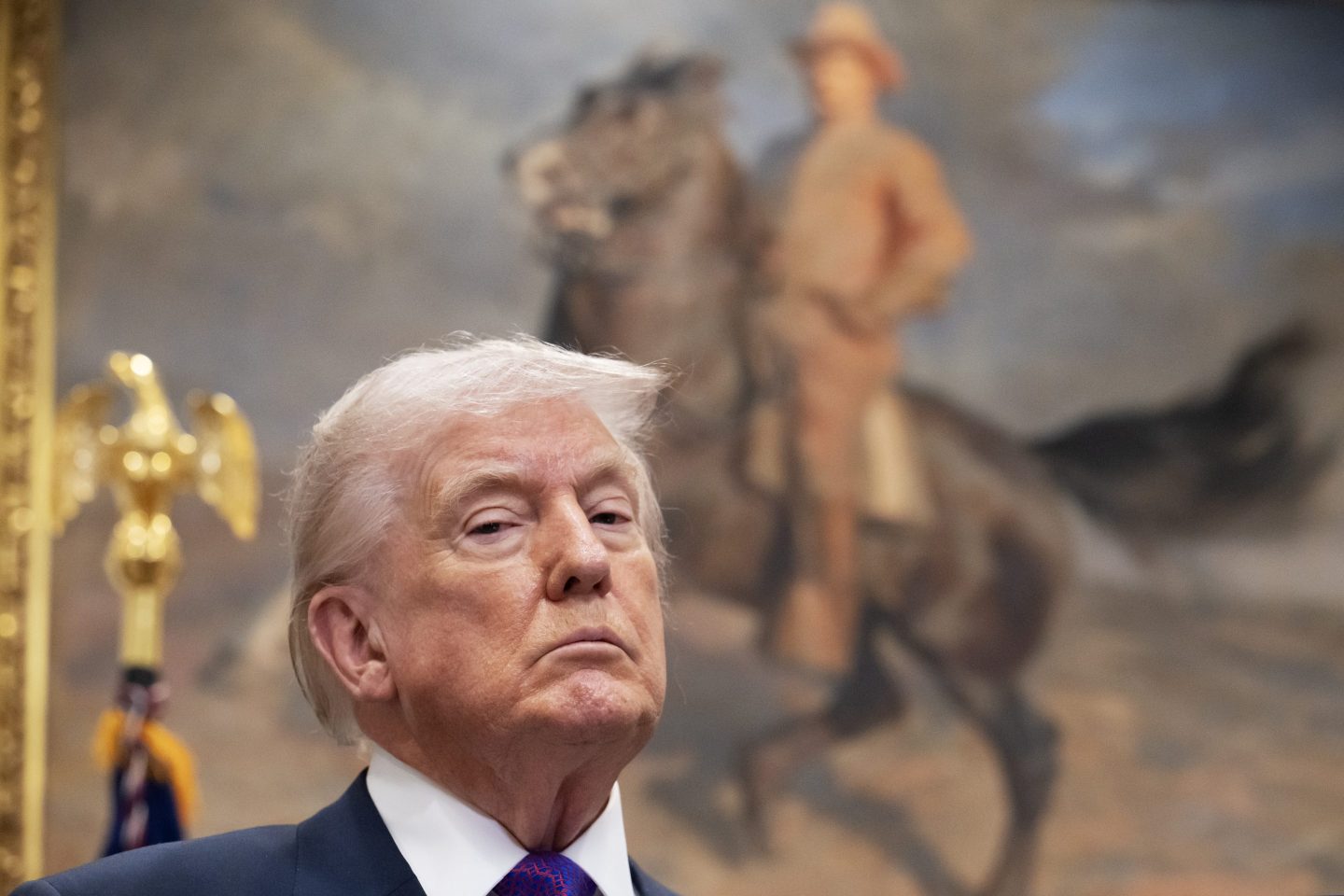Good morning. I hosted a lively roundtable discussion at Fortune Brainstorm AI London last week about where AI is delivering value—and how companies are measuring those returns.
Many great ideas bubbled up during the conversation thanks to the excellent executives in attendance. But one sticks with me a week later: “Customers increasingly do not care whether they interact with humans or AI so long as their issues are resolved quickly and accurately.” Hm.
Many thanks to Accenture for making the session possible. Today’s tech news below. —Andrew Nusca
P.S. If you missed it, read coverage of Fortune Brainstorm AI London here. And don’t forget to register for our upcoming Brainstorms in Singapore, Park City, and San Francisco.
Want to send thoughts or suggestions to Fortune Tech? Drop a line here.
Nvidia-Humain deal puts Saudi Arabia at ‘the front of the line’ for AI chips

The U.S. chip deal with Saudi Arabia gives the Middle East region a massive advantage over China in the AI race, according to a prominent tech analyst.
This week Humain, an AI startup backed by Saudi Arabia's sovereign wealth fund, announced that it would receive 18,000 cutting-edge Nvidia Blackwell chips—the U.S. chipmaker’s newest and most powerful, introduced only in March.
Meanwhile China has had to settle for Nvidia’s H20 chips, which lack the firepower of their Blackwell counterparts.
Dan Ives, managing director at Wedbush Securities, says new Mideast customers will get preferential treatment over those in other countries outside the U.S. when it comes to chip deals.
“This puts them to the front of the line,” he tells Fortune, adding that the region could add “a trillion dollars to the market opportunity for AI over the next decade.”
And China? “The big loser,” Ives says.
It’s worth noting that Huawei, Nvidia’s closest semiconductor chip rival in China, has thrived despite U.S. sanctions. The company reported a 22% increase in annual revenue for the previous year.
But Ives isn’t convinced it will be able to go toe-to-toe with its American competition. “Nvidia owns the AI revolution,” Ives said, “and everyone knows that.” —Sasha Rogelberg
Stagflation could cause another Silicon Valley Bank-like crisis
Paging tech founders: Two years after the collapse of Silicon Valley Bank and First Republic, banks are still taking big losses thanks to high interest rates.
That’s cause for major concern, especially if President Donald Trump’s tariffs lead to the dreaded combination of “stagflation,” or rising inflation coupled with slowing growth.
U.S. banks held $482.4 billion in total unrealized losses on securities investments at the end of 2024, according to FDIC data, an increase of $118 billion, or 32.5%, from the previous quarter.
That number had risen to $515 billion when SVB fell victim to a bank run in March 2023.
The failure of the tech industry’s preeminent lender—SVB remains one of the largest banks to fail in U.S. history—sent shockwaves through the financial system.
Since then, regulators have become much more attuned to problems related to interest-rate risk and depositor flight, says Amit Seru, a Stanford finance professor.
But many of the core issues persist.
“In a stagflation scenario, the risk is that rates will be higher for longer and credit losses will begin to accumulate,” wrote Torsten Sløk, chief economist at private equity giant Apollo Global Management, in a Monday note, “in particular for lenders to tech, growth, and [venture capital], where borrowers are characterized by having no earnings and low coverage ratios.” —Greg McKenna
‘HBO Max’ brand revived for streaming service
For generations, it was just “HBO.”
Then it was “HBO Go” and “HBO Now,” then “HBO Max,” then just “Max.”
Two years later, parent company Warner Bros. Discovery is pivoting back to the home box office—”HBO Max,” to be specific.
The change isn’t just notable for the flip-flopping. (Though the service itself is in on the joke; the bio for one of its “Max” social media accounts reads, “These rebrands are trying to murder me.”)
It’s also a sign that the strategy to replace the HBO brand—spendy, edgy, acclaimed—with something more broadly appealing didn’t work.
In the two years since the company combined the original HBO Max and Discovery+, WBD improved the profitability of its streaming division by almost $3 billion, adding tens of millions of subscribers along the way.
But the company has bigger fish to fry. Like so many of its media peers, WBD’s streaming service trails a lead pack consisting of Netflix, YouTube, Disney, and Amazon. Meanwhile the company carries $38 billion in gross debt. Its stock, at under $10, is trading at a third of what it was only three years ago.
Reuters reported last week that Warner Bros. Discovery was on the road to a breakup that would split its cable television assets (e.g. TNT and TBS) from its streaming business à la Comcast and Versant; if CEO David Zaslav succeeds in doing so, the big question will be what happens next.
Just not, you know, “HBO Next.” That would be terrible. —AN
More tech
—eToro jumps 29% in market debut, a sign of hope for IPOs waiting in the wings.
—OpenAI releases new AI models. GPT-4.1 and GPT-4.1 mini, mobilize!
—Waymo recalls 1,212 vehicles in the wake of low-speed collisions with gates, chains, and other hazards.
—U.S. CFPB withdraws data proposal. Sought to more strictly regulate the ability of data brokers to sell U.S. user information.
—Google DeepMind debuts AlphaEvolve, a Gemini-powered AI coding agent.
—Uber rolls out Route Share. A pooled rides option that some might call “Uber for public transit.”
—CoreWeave beats estimates. Q1 revenue was up 420% (!) to $982 million in its first quarter post-IPO.
—Cisco CFO to retire. Mark Patterson will replace Scott Herren, who steps down in July after five years.
—Alibaba, JD.com offer iPhone discounts after sales slipped in Q1.














